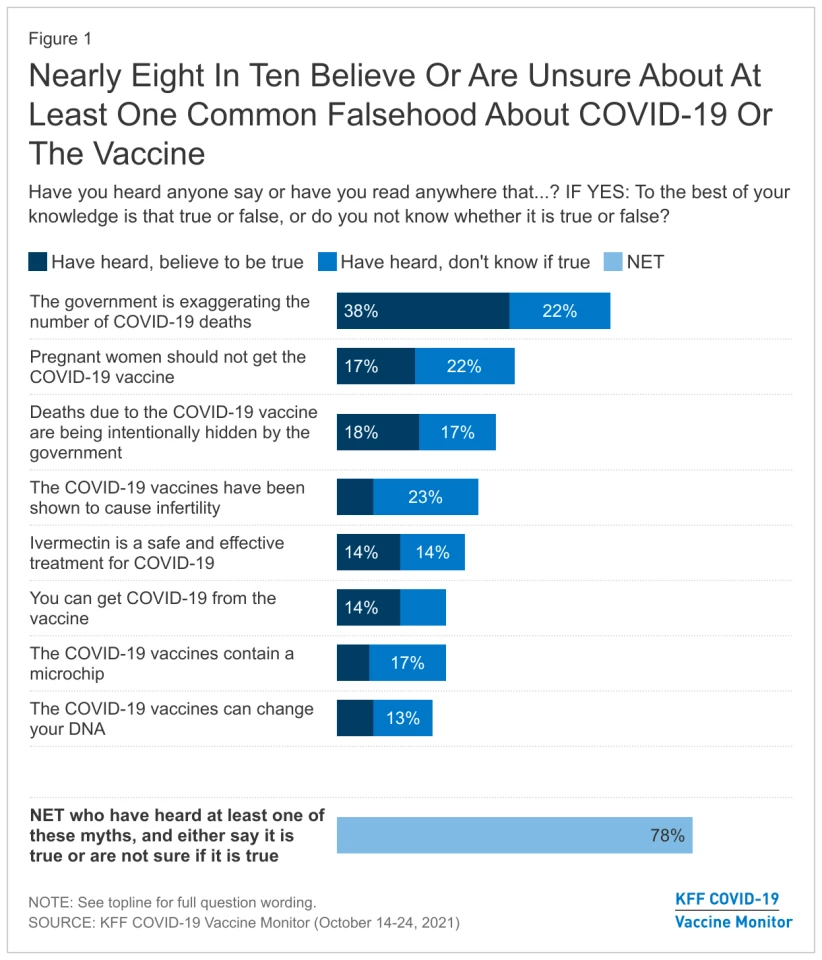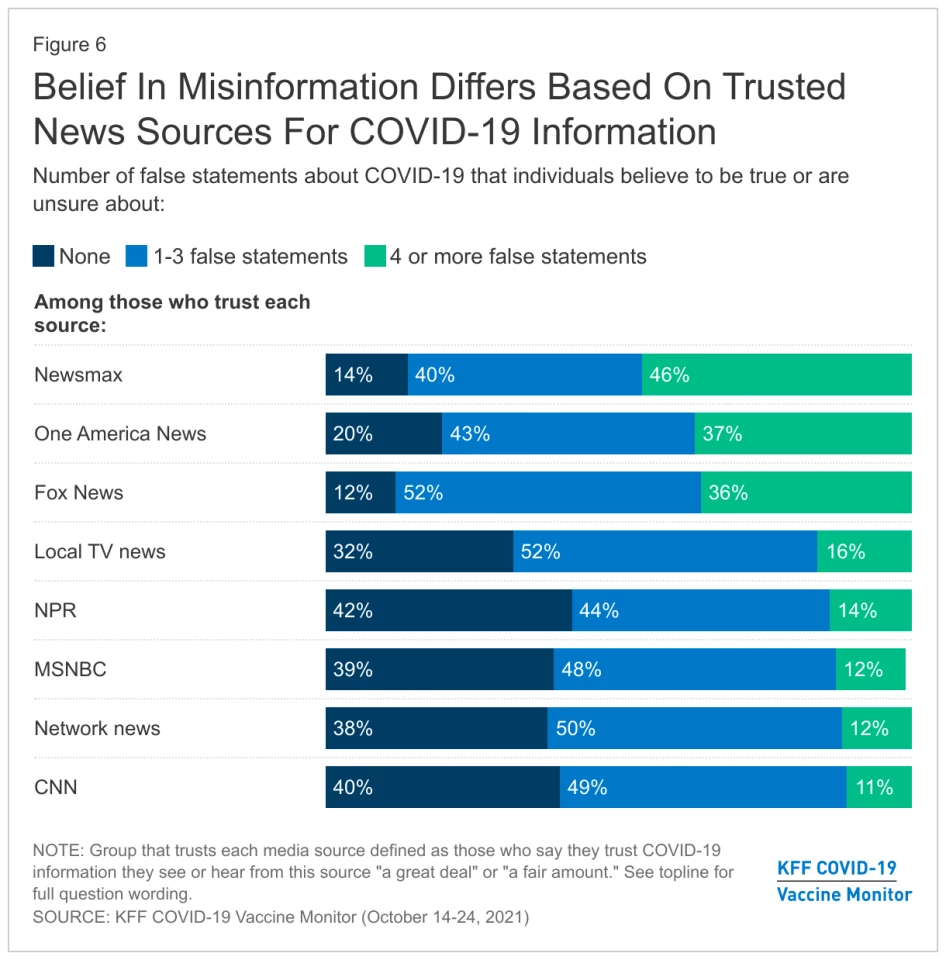A new survey from the Kaiser Family Foundation (KFF) has found 78 percent of Americans believe at least one piece of COVID-19 misinformation. The nonpartisan survey also found more than one third of those polled believe the US government is exaggerating the number of COVID-19 deaths.
KFF is a nonpartisan and nonprofit organization offering independent health policy analysis in the United States since 1948. The new Media and Misinformation survey is part of an ongoing KFF project called the COVID-19 Vaccine Monitor, which tracks dynamic changes to public attitudes regarding COVID-19 vaccinations.
The survey was conducted in October and included a nationally representative sample of 1,519 adults. The sample included a relatively even split between Democrats, Republicans and Independents. Around one third of the sample was unvaccinated.
Eight false statements were presented to the group and they were asked if they believe the statements to be true, false, or whether they were unsure about the information.
The statements, as seen in the figure below, spanned a number of common pieces of COVID-19 misinformation. These included false statements such as “COVID-19 vaccines cause infertility” and “COVID-19 vaccines contain a microchip.”

Little more than one in five adults surveyed were sure all eight statements were untrue. One third of all surveyed said at least four of the statements were either true or they were unsure of their truth.
Although Republicans were overall more likely to believe in a greater volume of false statements, Democrats were not immune to misinformation, with only 38 percent disputing all eight statements. Those unvaccinated subjects were most likely to believe in multiple false statements, with 64 percent expressing belief or uncertainty in four or more of the pieces of misinformation.
The survey also looked at the correlation between belief in misinformation and where individuals source their news. Fox News watchers had the highest rates of belief in misinformation, with 88 percent of those believing, or expressing uncertainty about, one of the eight statements. However, CNN and MSNBC viewers also fell victim to misinformation, with 60 percent of those groups believing, or at least questioning, one of the eight false statements.

“The findings highlight a major challenge for efforts to accurately communicate the rapidly evolving science about the pandemic when false and ambiguous information can spread quickly, whether inadvertently or deliberately, through social media, polarized news sources and other outlets,” says a statement from KFF accompanying the release of the new report.
In July the US Surgeon General Vivek Murthy issued an advisory to the American public warning of the the threats of health misinformation. Since then his office has produced a toolkit to help those in the community “understand, identify, and stop the spread of health misinformation.”
"Health misinformation is an urgent threat to public health," Murthy said back in July. "It can cause confusion, sow mistrust, and undermine public health efforts, including our ongoing work to end the COVID-19 pandemic. From the tech and social media companies who must do more to address the spread on their platforms, to all of us identifying and avoiding sharing misinformation, tackling this challenge will require an all-of-society approach, but it is critical for the long-term health of our nation."
Source: KFF






